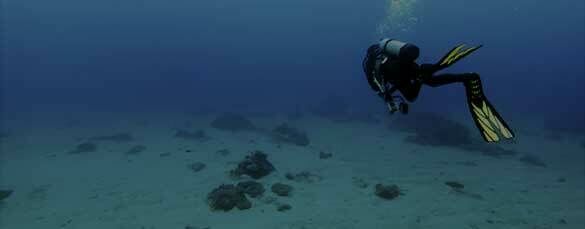Traumatic Head Injury
Epilepsy occurring underwater is almost always fatal to an amateur diver who will lose his mouthpiece and inhale water during the clonic phase of the attack. It is known that hyperbaric oxygen induces epileptiform fits in susceptible individuals and it is possible that the raised partial pressure of oxygen in compressed air breathed at depth may induce fits in someone susceptible to epilepsy.
Anticonvulsants cannot be used to overcome this problem underwater as they are all sedating and potentiate the effect of nitrogen narcosis, leading to disorientation at unexpectedly shallow depths.
Because head injury may be followed by epilepsy, the fitness of divers who have sustained this type of injury needs to be carefully considered. The following guidelines are suggested.
The length of post traumatic amnesia (PTA) including any period of unconsciousness may be used as an index to the severity of injury. Where PTA has been less than one hour, there should be a three week layoff from diving. With PTA of an hour to 24 hours, there should be a two month layoff. Where the period of PTA exceeds 24 hours, there inevitably has been severe brain damage and there is considerable likelihood of subsequent epilepsy and impaired mental functioning. A minimum period off diving of three months is suggested and cerebral function should have returned to normal.
Where enquiries are being made about an incident in the past, the individual sometimes has difficulty in recalling the period of PTA and in such cases the period of unconsciousness may be doubled as a rough guide.
If epilepsy should have developed as a result of injury then further diving is banned unless it was an isolated fit occurring at the time of injury. Likewise if anticonvulsant medication is being taken as a prophylactic measure, diving should be banned, but may be resumed three months after this is withdrawn if the individual never had a fit.
Operative intervention to raise depressed bone or evacuate haematomas should disqualify for three months but otherwise may be disregarded except insofar as it may be associated with subsequent fits, anticonvulsants treatment or other factors above.
In more severe cases a head injury can lead to significant impairment of executive function/attention etc. In those with significant injury the referee may feel it is prudent to obtain a report from the specialist or treating physician and/or initially limit to pool training only, then obtain a report from the instructor to make enquires about the diver’s ability to concentrate, learn and implement their learning by undertaking safe diving without a lack of awareness or ease of distraction underwater. An instructor should be asked to comment on whether the student is meeting the standards of the course (as set out by the agency), whether the student is correctly following the instructions during the training sessions and whether the student is responding correctly to assigned problems/scenarios during the pool training.
References:
1. Leitch DR. Head injury and diving. Wilmshurst P. ed. Nottingham Medical Conference Proceedings. British Sub-Aqua Club 1987; 4-10.
Reviewed July 2023



